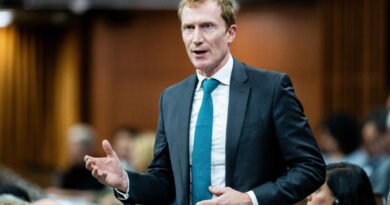White House Confirms High Number of North Korean Casualties on Ukraine Front Lines
According to White House spokesperson John Kirby, North Korean forces are suffering significant casualties in Russia’s war against Ukraine, with around a thousand troops killed or wounded in the past week in Russia’s Kursk region.
This number surpasses the figures previously disclosed by U.S. officials.
Kirby mentioned that Russian and North Korean military leaders are treating these troops as expendable, sending them on futile assaults against Ukrainian defenses, describing the offensive as “massed, dismounted assaults.”
The North Korean mission to the United Nations in New York and Russia’s U.N. mission declined to comment on the situation.
Ukrainian President Volodymyr Zelenskiy noted in his nightly address that North Korean forces have suffered significant losses and are entering battles with minimal protection from the Russian forces.
He expressed concern that Russian and North Korean authorities are not prioritizing the survival of the North Korean soldiers.
Zelenskiy further stated that while Ukrainian forces have captured some North Korean soldiers, they were severely injured and couldn’t be saved.
He emphasized that Koreans should not be losing their lives in a European war and urged China to pressure Pyongyang to prevent further casualties.
Zelenskiy reported on Monday that over 3,000 North Korean soldiers were killed or wounded in the Kursk region, citing preliminary data.
Earlier on Dec. 17, a U.S. military official revealed that North Korea had suffered several hundred casualties in the same region.
When asked about the ranks of the North Korean casualties, the military official mentioned that it ranged from lower-level troops to high-ranking officers.
Kirby mentioned that President Joe Biden is likely to approve another security assistance package for Ukraine in the upcoming days.
Biden had previously condemned Russia’s attacks on Ukraine and authorized the increase of weapon supplies to Ukraine.
Reports of combat losses and statements from both sides could not be independently confirmed by Reuters.
By Gabriella Borter, Michelle Nichols, and Idrees Ali





